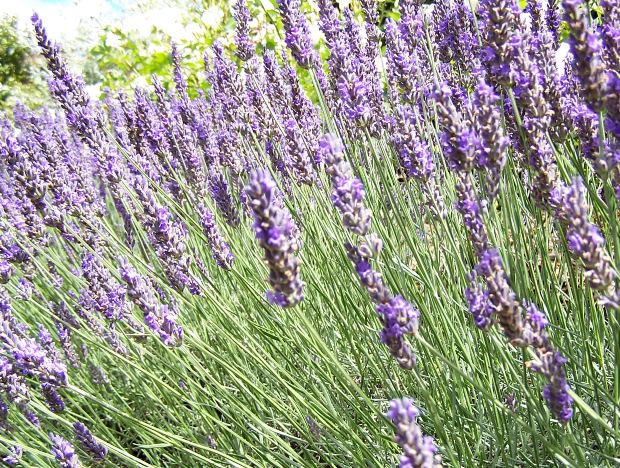Aromatherapy has been used for both medicinal and spiritual purposes for thousands of years, with some of the earliest known reports dating back to the ancient Chinese, Egyptian, and Greek civilizations. As you may already know, it involves the inhalation of natural fragrant compounds for the purpose of altering a person’s mood, cognitive function, or mental and/or physical well-being. Aromatherapy can also be used for spiritual development purposes, assuming the right oils are used.
Lavender
 Who doesn’t enjoy the light, stress-relieving fragrances of lavender? Originating out of the Mediterranean, this beautifully colored herb has become synonymous with aromatherapy. Lavender has been shown to both stimulate cognitive function while also relieving mental stress and anxiety. It’s a one-two punch that makes it particularly effective for spiritual practices like meditation.
Who doesn’t enjoy the light, stress-relieving fragrances of lavender? Originating out of the Mediterranean, this beautifully colored herb has become synonymous with aromatherapy. Lavender has been shown to both stimulate cognitive function while also relieving mental stress and anxiety. It’s a one-two punch that makes it particularly effective for spiritual practices like meditation.
Lemongrass
If you aren’t a fan of lavender, perhaps you should try lemongrass. Also known as Cymbopogon, lemongrass has a distinct citrus-like flavor and aroma. When cultivated for aromatherapy, lemongrass leaves are typically harvested and pressed to extract the oil. This oil is then placed in a diffuser that emits the oil into the air. Much like the aforementioned lavender, lemongrass also has calming, stress-relieving properties. Both lavender and lemongrass have been shown to improve sleep cycles. So if you have trouble falling asleep or staying asleep at night, try placing a diffuser filled with lemongrass or lavender oil in your bedroom, or try a cup of lemongrass tea.
Peppermint
We can’t talk about aromatherapy oils without mentioning peppermint. Peppermint is a fragrance that most people associate with candy, which is to be expected considering the vast array of candies featuring this scent and flavor. But peppermint oil offers some surprising benefits in terms of spiritual development. According to studies conducted by the Smell Institute, peppermint is useful in relieving anxiety and depression. Best of all, peppermint oil is incredibly strong, often requiring just a few drops in a diffuser to work.
The Science Behind Aromatherapy
You might be wondering how in the world aromatherapy oils such as these are able to improve a person’s mental and physical well-being. The truth is that scientists have yet to fully understand the mechanics behind aromatherapy, but the general consensus is that it does work. Some experts attribute the effectiveness of aromatherapy to its ability to stimulate certain regions on the brain. When you smell peppermint, for instance, it stimulates a particular area of the brain, which may in turn allow the body to relax.
Try out a LIVE READING -> Get Free Minutes!

